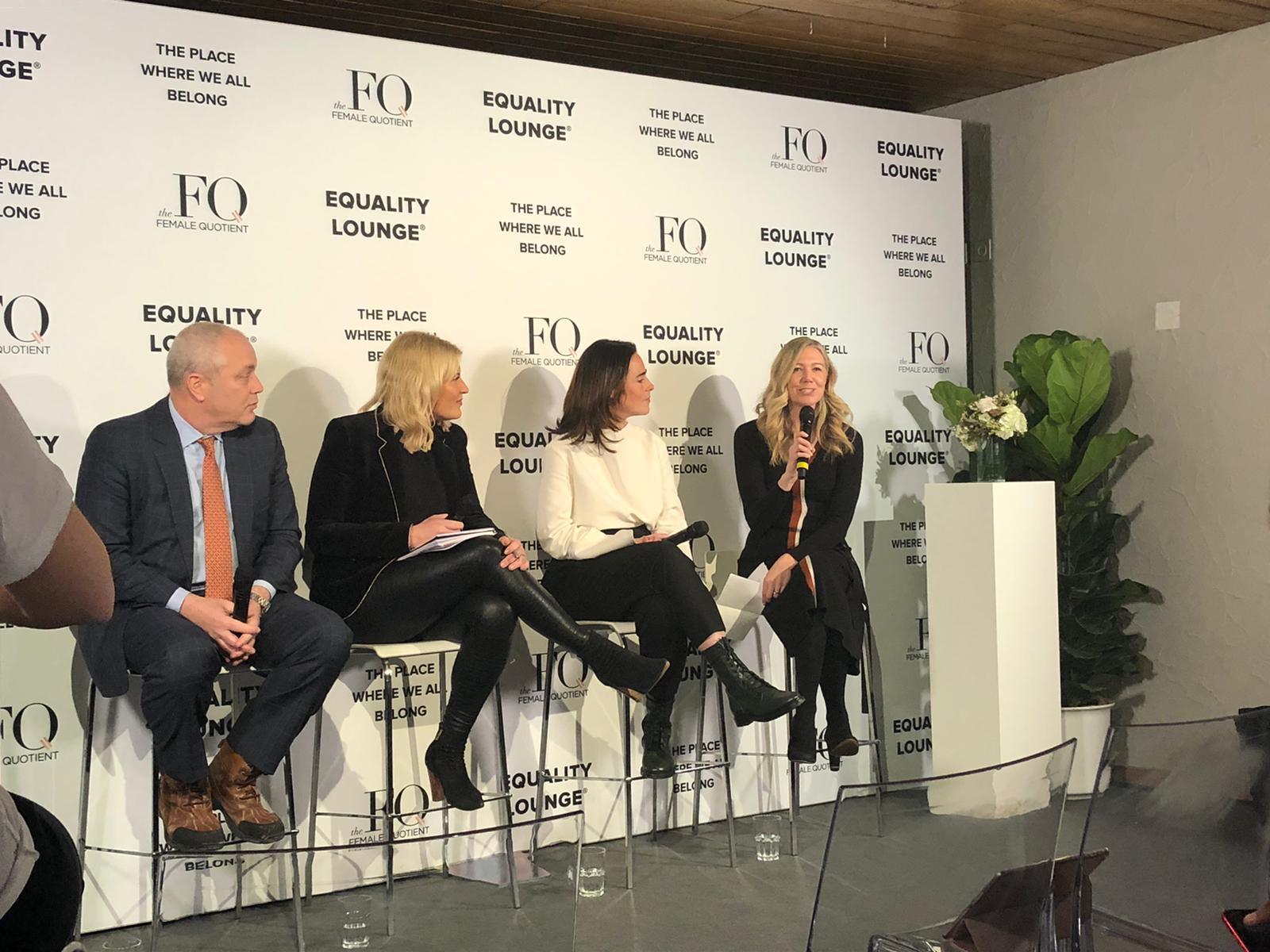
Sport, Business and the SDGs at the 2020 World Economic Forum
January 31, 2020
Last week, we had the opportunity to participate in the World Economic Forum (WEF) annual meeting in Davos, Switzerland -- where world and business leaders representing 117 countries and 121 engaged on the theme of ‘Stakeholders for a Cohesive and Sustainable World.’ Our goal was to hear the priorities of leaders across the political, corporate and NGO landscape who are influencing global agendas, assess intersections for the sport industry to play a positive role in those agendas and to contribute to discussions on sport as a platform for social change and good business.
The conversations were wide-ranging, covering sustainability, climate change, equality, mental wellness, LGBTQ, artificial intelligence, technology’s capacity for good and more, while also charting progress towards achieving the UN Sustainable Development Goals (SDGs). As a sector, it was greatly encouraging to see the sport industry have more meaningful inclusion in panels and meetings with heavy hitters such as Formula 1, NBC Sports, Major League Baseball, the International Olympic Committee (IOC), CAA Sports and the Fédération Internationale de l'Automobile participating.
Here are some of our insights from the conversations on sport:
With just 10 years to the 2030 deadline of achieving the SDGs, a focus on the need for purposeful business, leadership and alignment with the SDGs was noticeable. And, we were pleased to see conversations go beyond just talking about purpose, to actual plans that will shape and produce quantifiable impact. 
The 2030 Agenda has long recognized sport as an enabler of sustainable development, but at previous WEF meetings, it was more typical to hear from an individual athlete about their specific platform or to see them participate in discussions in a sparer manner. This year, sport as an industry was increasingly covered from a business perspective and as a catalyst for change on a broad range of issues. For example, Arsenal launched an initiative with Save the Children around mental health; Formula 1 reiterated its sustainability strategy and plans to become carbon neutral by 2030; and the Global Goals World Cup (GGWC) and the Novo Nordisk Foundation announced a new partnership, which will bring the first ever GGWC to Jordan to support women’s activism in the country, including refugees.
While all promising, there are still many more opportunities to leverage sport as a powerful tool for sustainability and progressive change - something we were pleased to advocate for at the UN SDG Media Zone. Facilitated by the United Nations Global Compact, Beyond Sport Founder and President Nick Keller and others shared their thoughts on the different ways the sport industry has power and the obligation to positively impact society.
Keller stated, “We all have this general notion that sport can have a positive impact on individuals, communities and on society as a whole. But it's bringing that to life and understanding how we can really make an impact across the number of the SDGs. Sport really is that connectivity point for the UN when it wants to speak about these things to the corporates, but also to young people in general. It's very consumable. So, there's that wonderful intersection that's coming about at the moment.”
Gender equality and it being essential for prosperity and sustainability also featured prominently at events. However, as is common, there was still a lack of discourse on sport addressing issues on the topic beyond participation. We’d love to see more conversation in forums like this on sport as a catalyst for equality and inclusion. Many teams and leagues are activating on this, but it is not featured as prominently and wasn’t really discussed in Davos for example.

To that end, we were fortunate to be able to elevate that topic at the Female Quotient Equality Lounge, where we helped put together a panel of women in the business of sport.
“By the Olympics in Paris, we will have parity, 50/50, of women competing. From a coverage and media perspective, we’ll start to see more stories about women athletes. This has a domino effect - for example, more sponsor opportunities outside of the Games,” shared Hannah Burns, Head of Games Promotion at the IOC, illustrating how more exposure can lead to more inclusive business practices.
Overall, the four days were packed with dialogue outside of the mainstage that was noticeably different in tone from just a year ago – more open, personal and frank. So, while there is still a long way to go in broadening perspectives, diversifying participation and addressing the carbon footprint of the meeting for instance, we were happy to see sport play a more vocal and meaningful role.
One month into the Decade of Action to accelerate momentum to achieve Global Goals, Davos showed increasing receptiveness to the sport industry contributing to the types of discussions that will hopefully move the world forward and we anticipate that trend will continue in the coming years. Because we know that sport knows how to deliver game-changing impact.
Beyond Sport looks to take advantage of opportunities to advocate and learn about how the sport sector can best position itself to advance a better world for all. Keep an eye out for our 2020 event calendar and if there’s a sports-related topic you feel is missing from national and international forums on key social issues, please let us know and we’ll try and elevate it where possible! #sameteam